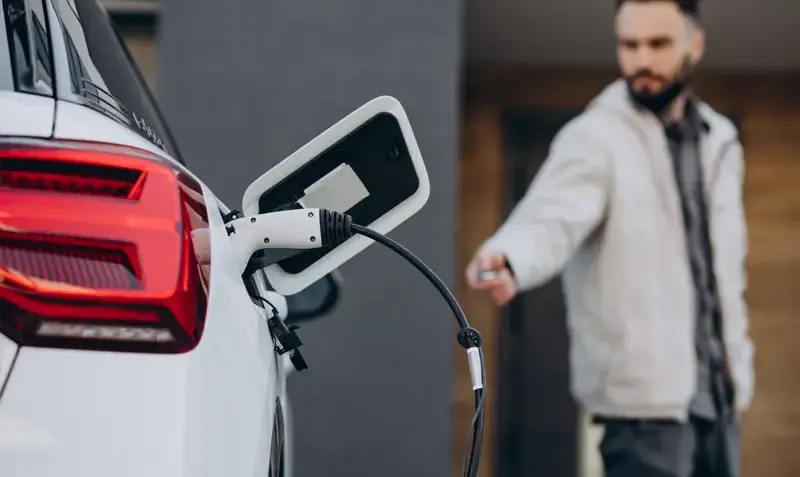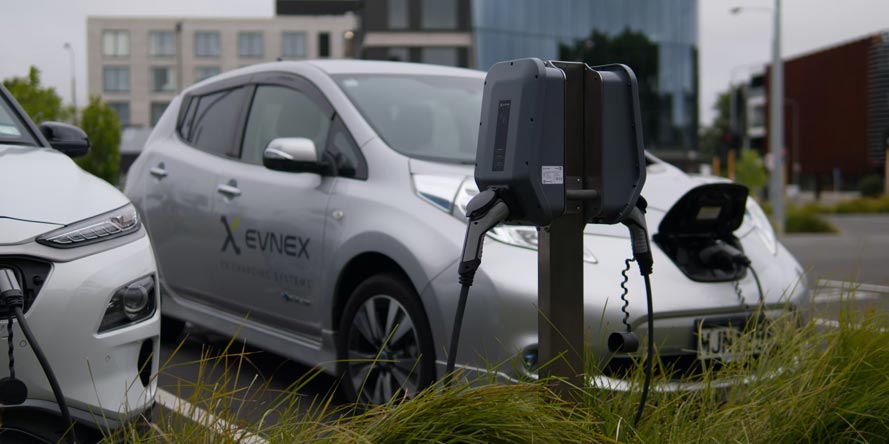EV Charging Costs
Just like driving a petrol or diesel vehicle, the cost of driving an EV will depend on the model of car (ie. the size of the battery) and how you drive it. What is definitely known is that the cost per mile of driving an EV compared to a petrol/diesel vehicle is considerably cheaper, on average a 50% saving is certainly possible.

Electric Vehicle Charging Costs
Given there are less maintenance costs with driving an EV and given there are also various incentives to drive EVs in terms of grants and tax exemptions, you can guarantee some considerable savings by making the switch to EVs, but let’s try and understand the costs of EV charging a little better.
Where can I charge my EV?
If you are lucky, you might be able to charge your EV for free at work, but even without that kind of perk you should be able to find a way to charge your EV cost-effectively.
Public charging
If you have no option for off-street charging at home, then you need to rely on the ever-increasing infrastructure of public charging at supermarkets, leisure centres and street-charging points. The costs of these depend on whether they are slow, fast or rapid. Naturally, you pay a premium for convenience, so if you want a rapid charge to 80% battery capacity within 30 minutes, you should expect to pay accordingly for that, compared to a slower charge which might take 90 minutes or two hours.
Some recent examples of rapid charging in supermarkets:
Lidl – 23p per kWh
Tesco – 24p per kWh
These are typical prices across many public charging stations, which means it will cost you around £6-7 for a 30-minute charging of around 100 miles (depending on the model of vehicle). The cost of charging at service stations depends on the network that you use. Usually this requires registering and subscribing with a network and setting up an account. Here you might get discounted rates on certain charging tariffs, but otherwise, public charging is paid through smartphone apps, with RFID cards or on a pay as you go basis.
It is also common for hotels or commercial establishments where you are a patron, to offer free charging to paying guests. It is expected that there will be a huge rollout of public charging points in the next few years which should make charging more convenient and possibly cheaper also.

Home charging
This is the main option for most people and has led to many motorists researching the best home energy tariff, as the cost of EV charging is incorporated into a home’s normal electricity bill, just like charging your phone is. The cost depends on how much mileage you do, the type of charger you have and how much public charging you also undertake. Installation of a home charger is around £1000, but you can get a Government Grant to subsidise the cost of this and the cost of supply and installation is also sometimes included in the supply agreement of the EV.
Cost of charging is largely down to the size of the EV and its battery. The bigger the battery and range, the more it will cost to charge it. If you are doing high mileage and you have to charge the EV overnight every day, then it is worth researching the best energy tariff with low off-peak rates.
For a Nissan Leaf it will cost you around £5 to achieve 200 miles of range, even on a standard energy tariff. A comparable petrol or diesel car achieving a comparable mileage might require you putting between £30-£40 in your tank. So if you have the time and it benefits your lifestyle and convenience, it is much cheaper to charge your EV at home.




























